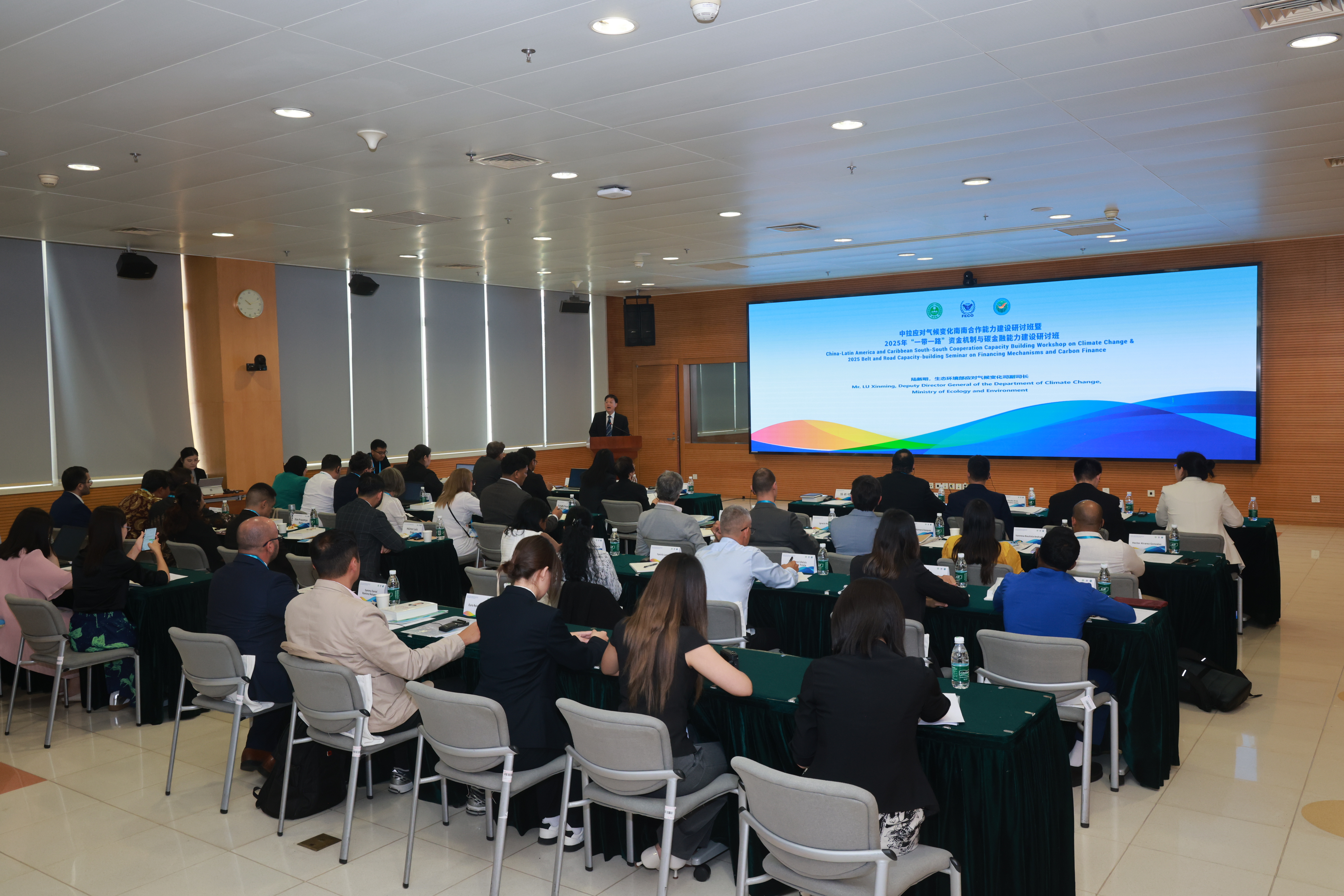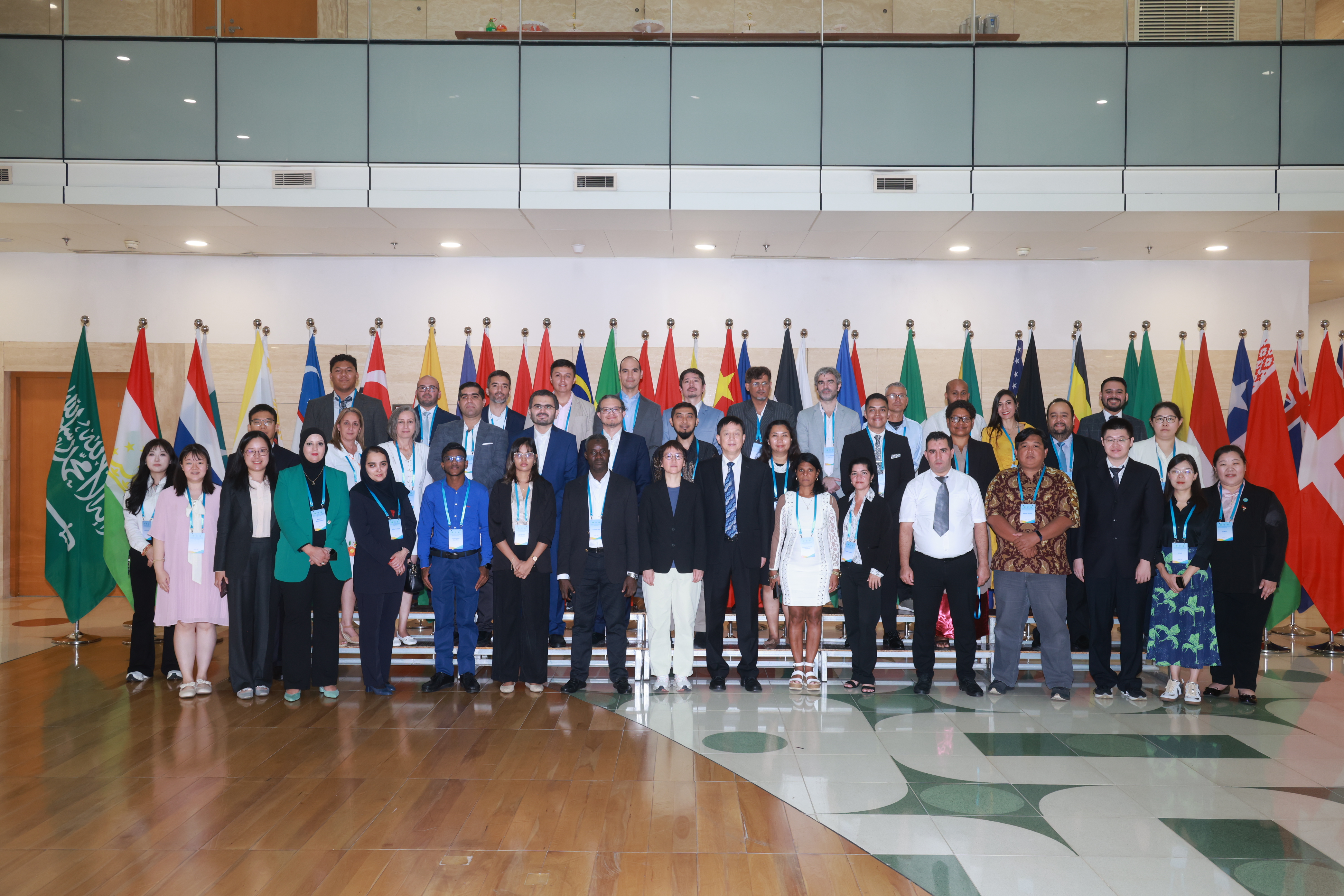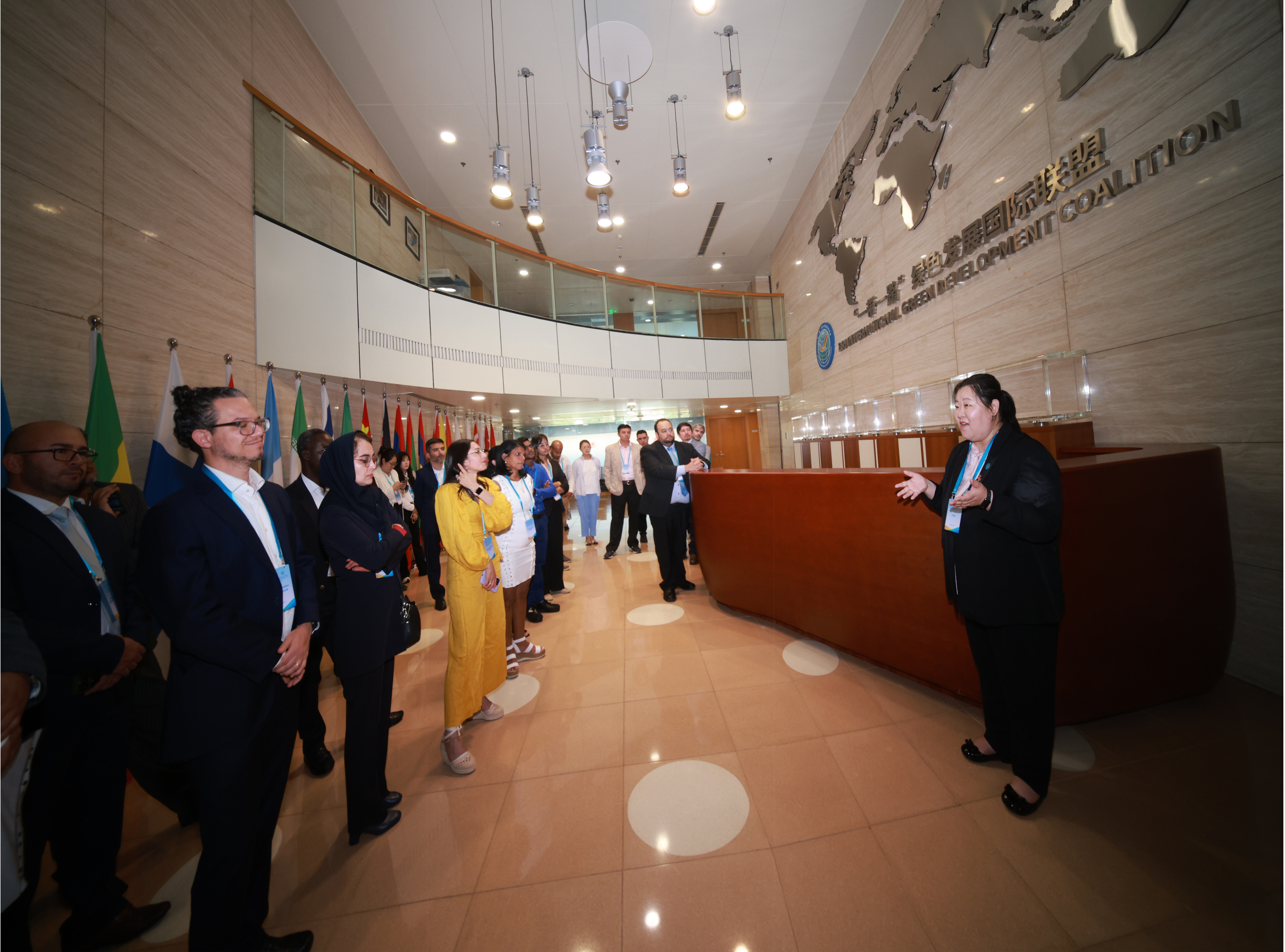Building Bridges for Green Development, Advancing South-South Climate Cooperation: Belt and Road Carbon Finance and China-LAC Climate Change Workshops Open in Beijing
The Workshop on Belt and Road Financing Mechanisms and Carbon Finance Capacity Building and the China-Latin America and the Caribbean (LAC) Capacity Building Workshop on South-South Cooperation in Addressing Climate Change opened on December 8th in Beijing.
Over the next 12 days, more than 30 government officials, experts, and technical personnel from the climate change sectors of 17 countries across Southeast Asia, Africa, and Latin America will gather to jointly explore pathways and practices for South-South cooperation in addressing climate change and promoting green, low-carbon development.

Guided by the Department of Climate Change and the Department of International Cooperation of the Ministry of Ecology and Environment (MEE), and organized by the Foreign Environmental Cooperation Center (FECO) of the MEE, these two workshops are undertaken by the Belt and Road Initiative International Green Development Coalition (BRIGC). They aim to promote exchanges and cooperation among developing countries in the field of green, low-carbon development and enhance capacities for South-South cooperation on climate change.
In his opening ceremony address, Mr. Lu Xinming, Deputy Director General of the Department of Climate Change of the MEE, stated that China has always been a steadfast supporter and practitioner of South-South cooperation on climate change. Since 2016, the total amount of project funds provided and mobilized by China for other developing countries to address climate change exceeds RMB 177 billion. To date, China has signed 54 South-South cooperation documents on climate change with over 40 developing countries, implementing nearly 100 climate change mitigation and adaptation projects. China has also conducted more than 300 capacity-building training sessions, providing over 10,000 training opportunities for participants from more than 120 developing countries.
Developing countries face multiple challenges of poverty reduction, development, and addressing climate change. Against the backdrop of intensifying global climate change and frequent extreme weather events, enhancing climate change response capabilities is particularly crucial for them. Brazil, the Presidency of the 30th session of the Conference of the Parties (COP30) to the UNFCCC, has proposed five pillars for addressing climate change: mitigation, adaptation, finance, technology, and capacity building. Mr. Lu Xinming expressed, "Those who share the same ideals need not be separated by mountains and seas. You have gathered in Beijing with the common goal of addressing climate change and promoting green development, and will conduct in-depth exchanges and discussions around these five pillars."
The development of green, low-carbon industries and climate investment and finance are internationally recognized policy tools for controlling greenhouse gas emissions. Li Xia, Deputy Director of FECO, stated that conducting exchanges and discussions on these hot topics is of great significance for enhancing the capacity of developing countries to address climate change. She expressed hope that participants would actively share their respective national practices and needs, use the workshop platform for mutual learning, and promote the establishment of close and practical cooperative relationships.
China and LAC countries are a community with a shared future advancing hand in hand. Claudio Ferreira, a workshop participant from Brazil and Technical Advisor at the National Secretariat for Urban Mobility of the Ministry of Cities, stated that Brazil is committed to promoting sustainable development, mitigating and adapting to climate change, and actively developing cleaner, less polluting energy sources. He looks forward to exchanging ideas on green, low-carbon industrial development pathways with peers from various countries and jointly exploring new areas for international environmental and climate cooperation during the workshop.

Small Island Developing States (SIDS) are facing severe challenges from climate change. Evisake Larakorewa, Secretary of the Ministry of Rural and Maritime Development and National Disaster Management of Fiji, expressed hope that through this workshop, participants would become familiar with and master the financing mechanisms and technical tools for addressing climate change, contributing positive efforts to the well-being and sustainable development of Pacific Island nations.
Following the opening ceremony, representatives from the BRIGC conducted on-site teaching for participants on the latest progress of China's international ecological and environmental cooperation and promoting the green development of the Belt and Road Initiative. It was introduced that the BRIGC has gathered over 180 Chinese and international partners from 47 countries. The Coalition has established a business framework centered on the Belt and Road Green Innovation Conference, supported by the Green Investment and Finance Partnership (GIFP), the Green Low-Carbon Expert Network (GLEN), and the Belt and Road Big Data Platform for Environmental Protection, with policy research and capacity building as foundational supports – forming a "one mechanism, three platforms, two supports" structure. Undertaking these workshops is an important practice of the BRIGC in supporting capacity building for South-South cooperation on climate change.
